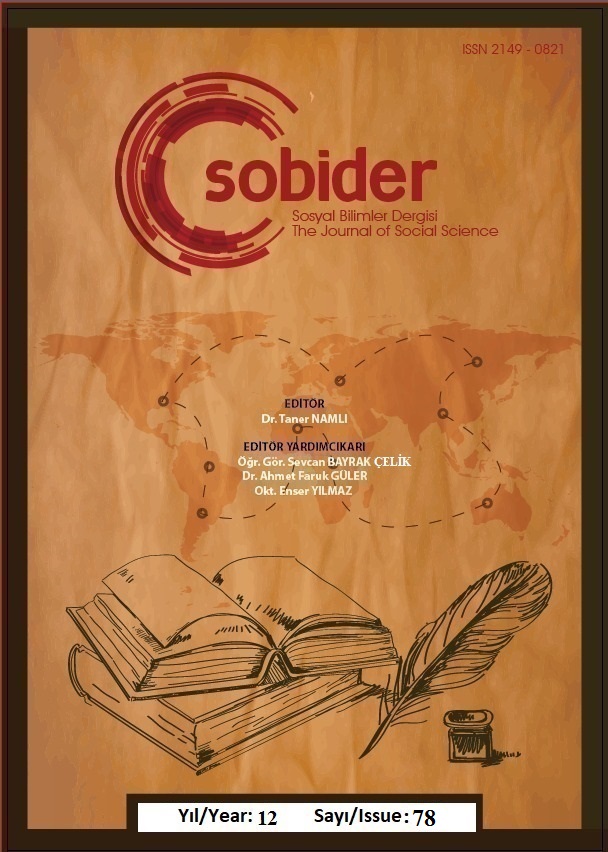Author :
Abstract
Bu makale, İmamiyye Şiası’nda gaybet döneminde dinî ve siyasî otoritenin velâyet-i fakih anlayışı doğrultusunda nasıl şekillendiğini incelemeyi amaçlamaktadır. İmam Hasan el-Askerî’nin vefatının ardından taraftarları çeşitli gruplara ayrılmış, İmâmiyye topluluğu ise Hasan el-Askerî’nin oğlu Muhammed’in imamlığı üstlendiğine ve gaybete girdiğine inanarak onun zuhurunu beklemiştir. Gaybet, toplumda dinî ve toplumsal düzenin uygulanmasında önemli bir otorite boşluğu ortaya çıkarmıştır. İmâmiyye, bu süreçte siyasî faaliyetlerde bulunmayı, özellikle de devlet kurmayı caiz görmemiştir. Bu boşluğu gidermeye yönelik olarak Şeyh Müfîd, fakihin genel velâyeti anlayışını temellendirmiş; İbn İdrîs el-Hillî bu anlayışı daha sistematik bir yapıya kavuşturmuştur. Kerekî’nin Safevîlerle kurduğu ilişkiler sayesinde söz konusu yaklaşım kurumsallaşmış; Nerâkî’nin katkılarıyla fıkıh alanından kelâm alanına taşınarak, velâyet-i fakih adı altında hem dinî hem de siyasî otoriteyi kapsayan kapsamlı bir teoriye dönüşmüştür. Nâînî, zalim sultanın dinî otoritenin denetimine tabi olması gerektiğini belirtmiş; Humeynî ise bu teoriyi modern Şiî siyasetinde devlet yönetimiyle bütünleştirerek çağdaş dönemin temel siyasal modelini oluşturmuştur. Makale, tarihsel analiz ve kavramsal çözümleme yöntemiyle gaybet dönemindeki pasif bekleyişten velâyet-i fakih çerçevesinde aktif otorite kullanımına ve bu doğrultuda devlet kurmanın meşruiyet kazanmasına uzanan süreci ortaya koymaktadır.
Keywords
Abstract
This article explores the evolution of religious and political authority in Imāmī Shīʿism during the period of occultation, with particular emphasis on the doctrine of wilāyat al-faqīh (guardianship of the jurist). Following the death of Imām Ḥasan al-ʿAskarī, the Shīʿī community fragmented into several groups. The Imāmīs, however, maintained that his son Muḥammad assumed the imamate and entered occultation, whose return they continue to await. The absence of the imam created a profound vacuum of authority in the regulation of religious and social life. During this early stage, the Imāmīs generally refrained from political engagement, particularly the establishment of a state. Efforts to address this vacuum began with Shaykh al-Mufīd, who articulated the principle of the jurist’s general guardianship, later systematized by Ibn Idrīs al-Ḥillī. Through al-Karakī’s collaboration with the Safavids, this concept gained institutional grounding, while Narāqī extended it from jurisprudence into theology, transforming it into a comprehensive doctrine under the title of wilāyat al-faqīh that encompassed both religious and political authority. Nāʾīnī argued that even a tyrannical ruler must remain subject to the oversight of religious authority, whereas Khomeini integrated the theory into modern Shīʿī political thought by linking it directly to state governance, thereby establishing the principal political model of the contemporary period. By employing historical analysis and conceptual inquiry, this study traces the trajectory from passive expectation during the occultation to the active exercise of authority under the framework of wilāyat al-faqīh, culminating in the legitimation of state formation within Imāmī Shīʿism.





